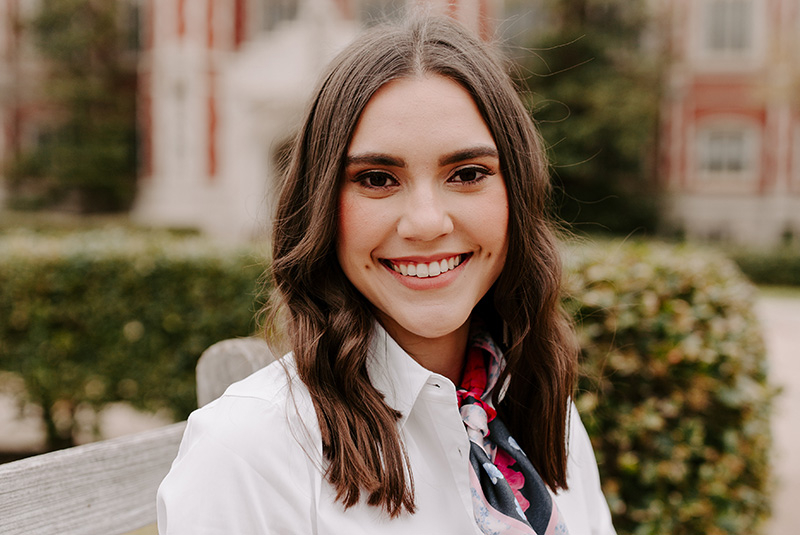An Enriching Education in the Heart of Europe

Q: What encouraged you to apply to Johns Hopkins SAIS?
A: I have said from the moment I was accepted to Johns Hopkins SAIS that it was truly destiny. I had just left South Korea after the Fulbright Program allowed for voluntary evacuations and was planning on attending a different international affairs graduate program in Washington DC, but I was not convinced it was the right fit for me. While I was perusing LinkedIn one day, I saw a post that SAIS Europe was extending their application deadline for Fulbright evacuees. I have had multiple past experiences in Italy, from completing a year of high school as an exchange student in Brescia to interning at the U.S. Embassy in Rome that convinced me to apply. The school’s esteemed international reputation, extensive alumni network, and world-renowned professors in both qualitative and quantitative fields influenced my decision as well. Once I learned I was accepted, it just felt like the right decision given my background and future goals. I couldn’t be happier!
Q: What were you doing before attending the school?
A: Prior to attending Johns Hopkins SAIS, I worked at an alternative school for North Korean refugees in Seoul, South Korea. I taught advanced English and Public Speaking courses while assisting in the planning of community events (like the annual ‘Reunification Evening’ where the public can come together and experience a small reunification through song and dance).
Q: Could you please tell us about your role serving on the school’s Student Government Association (SGA)?
A: On SGA, I focus on event planning (with precautions due to COVID-19). If possible, I plan to organize a tour of some of the famous palazzi in Bologna through the FAI (Fondo Ambiente Italiano or Italian Environment Fund) organization. FAI raises money to help protect and preserve many architectural and historical locations in Italy. I have also been recently working with the school on coordinating student observation interviews for potential incoming professors.
Q: What was one of your favorite experiences studying in Bologna at SAIS Europe?
A: My favorite experiences are really those where I am hanging out with other SAIS students. I really enjoyed when we could all grab dinner together and explore new restaurants back in the summer when there were less COVID-19 restrictions (because of less cases in Italy).
Q: What have you been up to outside of the classroom?
A: I am currently working two part-time internships. First, I am a Virtual Student Federal Service intern at the U.S. Embassy to Sri Lanka in Colombo. I focus on human rights issues with my main task being to edit the annual Human Rights Report of Sri Lanka with updated information. I also wrote a cable on official impunity under the current Gotabaya Rajapaksa administration. Second, I am a Research Assistant for the Center for Constitutional Studies and Democratic Development. To highlight a few of my tasks, I researched recent U.S. Supreme Court cases directly related to the election and COVID-19 (such as decisions regarding the date by which ballots needed to arrive in order to be counted) and will begin working on research regarding the South Korean constitutional preamble for a professor’s paper.
Q: What do you hope to do with your degree after you graduate?
A: I always like to answer questions like these with a short and long-term mindset. I would love to work in Italy for a few years after I graduate particularly in a research field. My long-term goal is to serve in the Foreign Service as a Political Officer.

